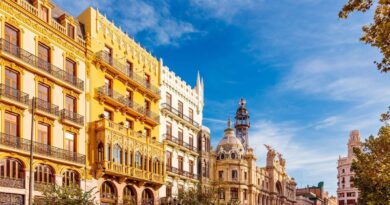Europe’s beautiful city that ‘banned’ cruises as tourists never stayed more than 3 hours | World | News
In 2018, 8.3 million tourists poured into the beautiful Belgian city of Bruges, a surge of 900,000 from the previous year. Of this figure, six million were day-trippers who only stayed for two to three hours, many from cruise ships which were docked at the city’s Zeebrugge port.
At peak times, visitors outnumbered residents three to one.
Bruges became one of the world’s first international tourist destinations in the 19th-century, attracting wealthy British and French holidaymakers. The historic city centre is a prominent UNESCO World Heritage Site.
Its first tourism association was set up in 1909. Since then, its tourism industry has boomed.
However, a study by the Flemish Tourism Office highlighted that an increasing number of residents disliked the tourists that arrived on the ships, despite the financial benefits they may have brought to the local economy. A large proportion indicated that they wanted fewer cruise tourists, according to The Brussel Times.
In 2017, 20 percent indicated they would have preferred to see fewer ships dock. By 2021, this figure had risen sharply to 50 percent.
“That is a huge increase in a short period of time,” researcher Marjan Nauwelaert told Belga News Agency. “In Bruges, it’s 57%.”
In a bid to keep this “Venice of the North” tolerable for locals and preserve its Flemish charm, Bruges’ mayor, Dirk De fauw said: “We have to control the influx more if we don’t want it to become a complete Disneyland here”.
The city’s port, Zeebrugge, has the capacity to handle up to five ships at once. However, in 2019, this number was limited to just two. Higher numbers of ships were also encouraged to dock on weekdays rather than weekends, when most daytrippers arrived.
Bruges had already enforced a ban on new hotels and on locals in the city centre renting houses as holiday homes. They also then asked the Flemish government to help introduce a ban on “monotonous tourist shops” to preserve the city’s character, including the banning of new chocolate shops which saturate the city.
The mayor also vowed to rebuff the repeated request for the allowing of organised kayaking and extra large boats for the city canal tours.
City authorities also stopped advertising Bruges in other Belgium cities including Brussels in a bid to curb footfall, a move reminiscent of Amsterdam. Mayor De fauw described such posters as “really not necessary”, when speaking with the Het Nieuwsblad newspaper.
“You can ask yourself if we need posters at Brussels airport. Those people have probably already booked their hotel, perhaps in a different city. Do you still have to lure them to Bruges?
“But we have to aim for quality tourism, people who stay here for a few days, eat well, visit museums. Not the large crowds that are taken here by bus for three hours and then return to their cruise ship.”
Stef Gits, from Tourism Flanders, told The Telegraph that Bruges was not facing the same conditions as other European countries such as Barcelona and Amsterdam, but did admit that the focus should be on tourists “who want to invest time in their destination”, not cruise and daytrippers.
Speaking exclusively with Express.co.uk in 2019, the Cruise Line International Association said they would make a pledge to “sustainable” tourism.
“The cruise industry accounts for around three per cent of total tourism to Bruges, and whilst we are a small part of the overall mix, we want to be a large part of finding a sustainable solution to ensure the city works for both residents and visitors.”
They added that they were actively partnering with local stakeholders including mayors, governments and tourism businesses to address immediate concerns and collaborate on long-term planning.
“The cruise industry recognises that Bruges is a unique destination, and the cruise industry is committed to protecting its cultural heritage and safeguarding its sustainability.”





